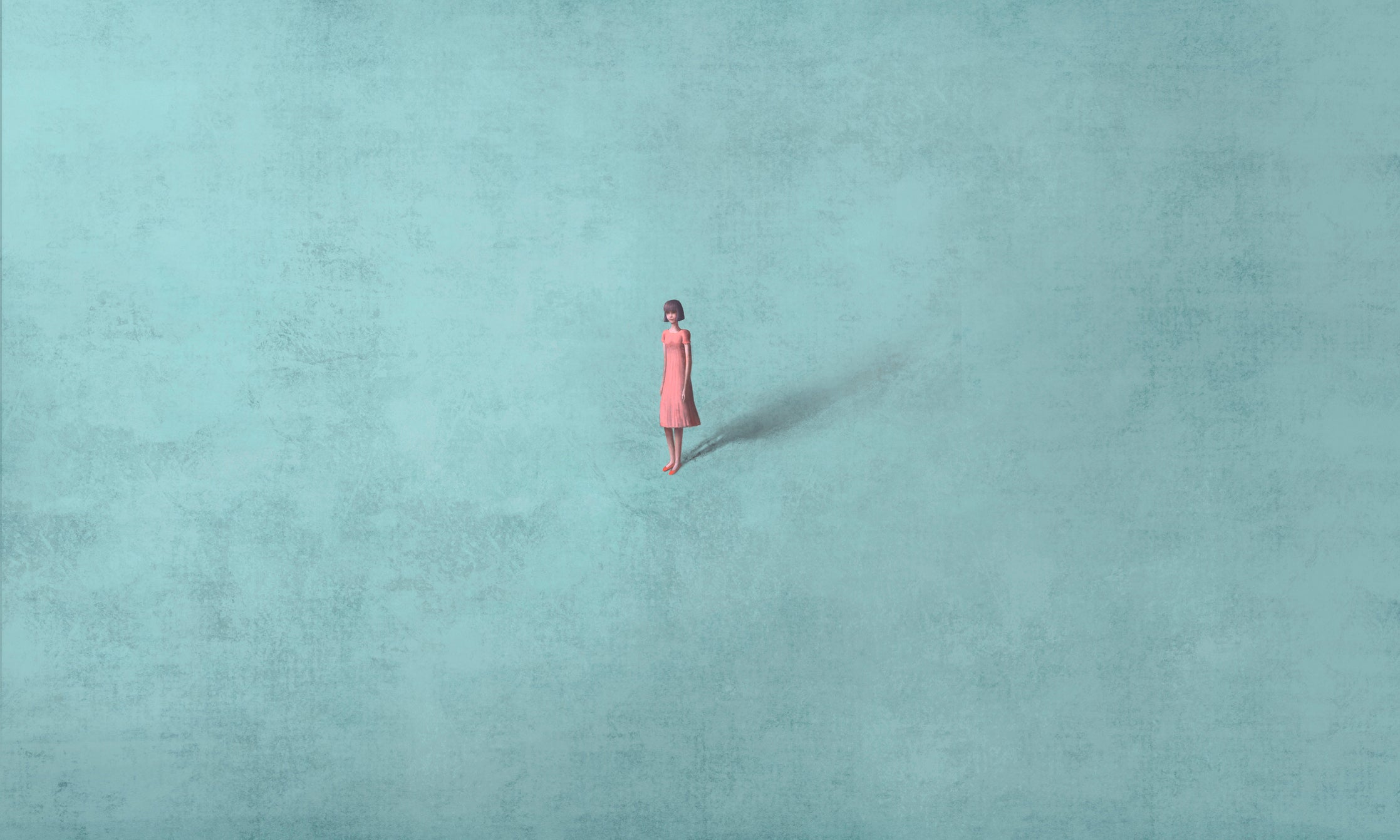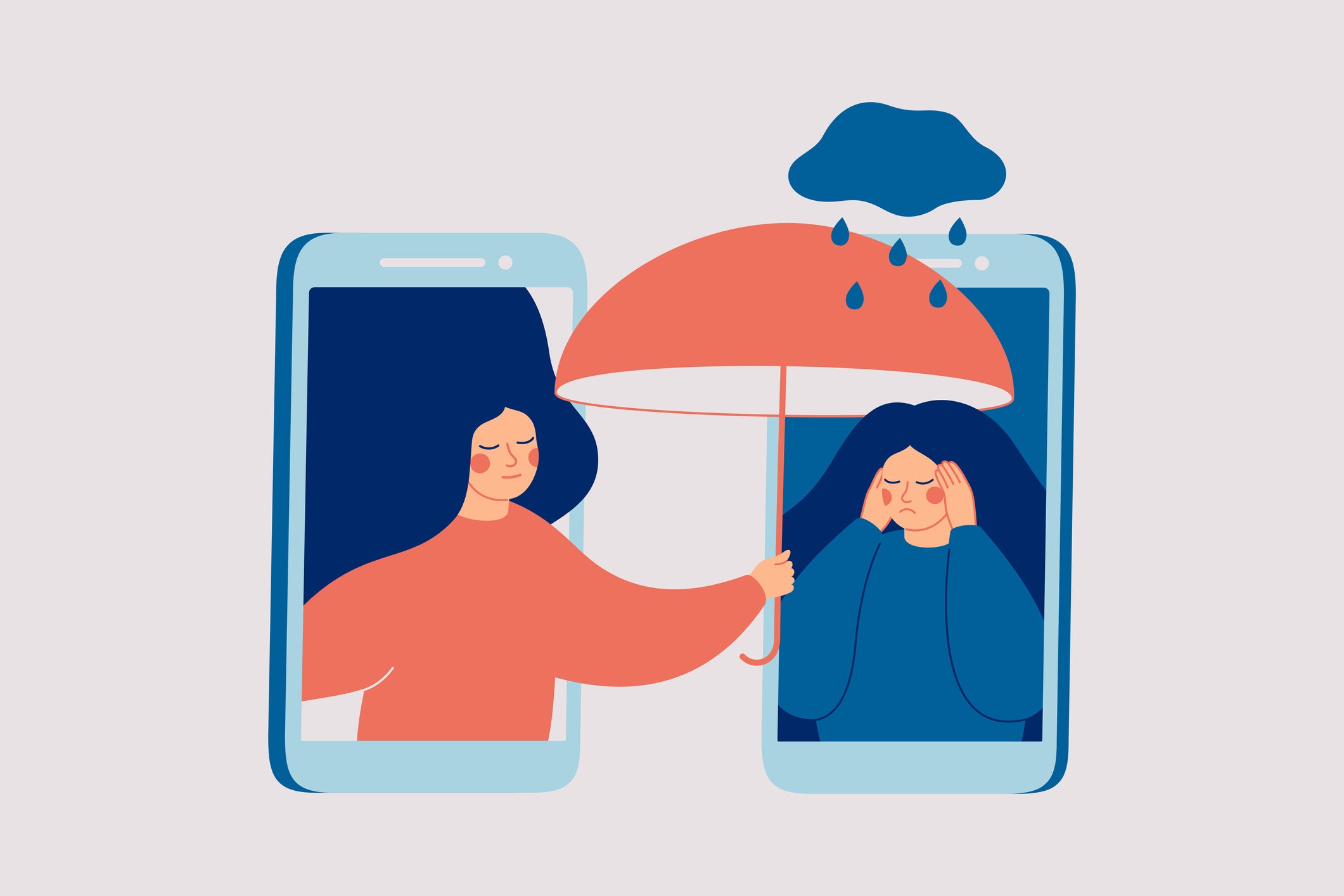The grief of a cancer diagnosis that isn’t yours
When Molly Codyre’s sister was diagnosed with cancer, she discovered the pain of secondhand grief


Before we have experienced the roaring agony of grief, we exist in a kind of bubble. It’s not dissimilar to life before love – or life before heartbreak, for that matter. We exist in the unknown. A world where pain – the gut-wrenching, can’t breathe, can’t sleep kind of pain – seems like a concept outside of our own existence, unimaginable and improbable.
It is not until something happens – something so cataclysmic it alters your life forever – that you realise grief exists on a spectrum. Having lived through a pandemic halfway across the world from most of my family (me in the UK, them in New Zealand), endured the pain of my childhood pet passing away when I couldn’t say goodbye, and overcome a traumatic friendship break up, I thought that my lot for the last year had been dealt. So when my big sister casually mentioned an abnormal mole to me, I didn’t think anything of it.
A few weeks later, she was diagnosed with stage 3C nodular skin cancer. The mole on her body turned out to be cancerous, and the cells had spread to her lymph nodes. Nodular skin cancer only makes up around 15 per cent of all melanoma cases, but it the most aggressive kind of skin cancer. Thankfully, the cancerous cells hadn’t settled as a tumor elsewhere.
When she delivered the news, I learned what it’s like to live in a world that exists in a before and an after. The before: the you who never knew. And the after: the you who will never move forward in the same way again. There are uncertainties. There is the never-ending anxiety that comes prior to, during and after each doctor’s appointment. And there is the guilt. The I-wish-it-had-been-me anger at your own body for existing healthily, and the realisation that your sister will never be able to live her life in the same way again.
When someone you love is ill, everything you feel comes with a side of guilt. A brief spark of happiness after a fun evening with friends immediately leaves a bitter aftertaste. The fleeting moment after you wake up during which you have momentarily forgotten, feels like a betrayal. Trying to come to terms with your own grief feels like a selfish endeavour. It both is, and is not, happening to you. You are going through this. Your grief still exists – but you’re not the one whose physical being has been changed forever.
Second-hand grief is a term used by some to describe the unique experience of feeling grief on behalf of someone else. The terrible thing isn’t physically happening to you, but you still experience a kind of trauma. It is something many NHS workers experienced throughout the pandemic, as they cared for Covid patients. In my case, this second-hand grief was compounded in a hyper-personal way.
When she delivered the news, I learned what it’s like to live in a world that exists in a before and an after
At first, I was in denial. My sister was there in front of me, standing tall and acting normal – so surely she was OK? But I soon became furious. I had no one to blame for the pain I was feeling, and directed my rage towards everyone and everything. How could my sister – the cheery one, the person I’ve always leant on for support – not be alright?
The last 12 months have taught me that it’s ok to feel absolutely terrified when faced with the mortality of your best friend in the entire world. Letting yourself marinate in it momentarily in order to deal with it is healthy. In Jessie Cave’s novel Sunset, the protagonist Ruth is dealing with the loss of her sister. Ruth described friends as being surplus to requirement when you have a sister who is also your closest friend. This is exactly how I feel. I never laugh harder, smile more widely or feel more completely myself than when I’m with my sister. To imagine a world without her is incomprehensible, and yet, a cancer diagnosis forces you to face this reality.

Grief is a transient thing. It sits dormant during the lulls between scans and tests and doctors appointments, and then suddenly rises up and punches you in the stomach. It can knock you for six and leave you breathless – sometimes when you’re sitting at home with a quiet moment to think, other times when you’re walking down the street.
It also makes you kinder. It softens your edges and leaves you more attuned to other people’s pain. It fills you with an overwhelming determination to make things better for people, in some kind of bargain with fate. If you help them, perhaps karma will help you.
I have to believe that my sister will be OK. She has an incredible medical team looking after her, she is lucky to have cutting edge treatment available to her and she is young and fit. She has been on chemotherapy since July 2020, and this will continue until October. Right now she is as good as she could be, no tumours have settled, her scans have remained clear and the meds seem to be doing the trick.
She has learnt, at such a young age, how fragile her health can be, and how quickly life can turn on you.
The side effects vary in frequency and severity; sometimes she is bed-ridden for a few days, feverish and shaking. Other times she’s able to go about life almost as normal. But the low energy and frequent body aches are constant. She has consistently amazed me with her immense strength and capacity to find joy. Even on the darkest of days, she’d still have me in fits of laughter or be a willing shoulder to cry on for my comparatively superficial problems.
Her life, however, is forever changed. Chemo can impact fertility, so her children are likely to come from the eggs that were harvested in those first few months. She will have to get monthly scans, and check her skin for any minor imperfection frequently. Most importantly she has learnt, at such a young age, how fragile her health can be, and how quickly life can turn on you.
A year on from my sister’s diagnosis, I am still coming to terms with my grief and navigating how to be the best possible support for her. I have learnt that surrounding yourself with family tips the scale of grief in a better direction, and that allowing flashes of joy to settle and grow isn’t disloyal, it’s vital for survival.
Join our commenting forum
Join thought-provoking conversations, follow other Independent readers and see their replies
Comments
Bookmark popover
Removed from bookmarks